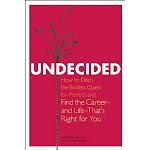And we're back! New year, new decade, new ethics question, via Clark Hoyt's weekly column for the New York Times on journalism practice and ethics.
In
Sunday's column, the paper's "public editor" writes of why the paper will no longer be working with three freelancers: Harvard professor Mary Tripsas who failed to disclose the fact that 3M, a company she wrote about in the business section, had paid her way to visit its plant; another freelancer who similarly failed to disclose that he had accepted an expense-paid junket to Jamaica for a story for an online publication; and lastly, a young and prolific writer who misrepresented himself as an NYT reporter when "asking airline magazines for free tickets to cities around the world for an independent project."
You gotta admire his chutzpah. But credible journalism practice it is not.
What was at stake, Hoyt writes, was not just the fact that the three had violated the language set out in the Times' freelance contract -- but they had essentially violated the reporter's covenant with the reader. While there may or may not have been a real conflict of interest in these cases -- the perception of bias is always there when reporters are paid to play. At least one freelancer, however, takes issue with the policy. Former Times columnist Virginia Postrel finds the rules unfair to writers and "borderline unethical" From Hoyt's piece:
The paper wants to treat freelancers like staffers without the same pay or benefits, and without paying for their research, Postrel said. She said The Times operates under “the false assumption” that companies pay fees to professors or authors to influence their writing rather than to learn from them. Postrel said Tripsas’ main job was to understand and improve business practices, so it did not matter who paid her way to 3M.
Times editors reject such arguments because, to them, the most important consideration is that everything in the newspaper, no matter who produces it, must be free of even the smallest hint of undue influence. “I think it is important for us to be clear and strict about our rules so readers have reason to trust our credibility,” [Standards editor Phillip] Corbett said.
Ultimately, that's what it's about. Transparency and credibility. Not only to please the editors or the mighty New York Times, but most importantly, at a time when the entire industry is tottering on a cliff, to live up to the expectations of the readers.
BTW, you can download a pdf of the NYT's ethical rulebook here (for some reason, the link won't work the way it should. Do not ask me why.):
http://www.nytco.com/pdf/NYT_ Ethical_Journalism_0904.pdf.Meanwhile, I like the way True/Slant's Caitlin Kelly
weighs in on the young freelancer who misrepresented himself as a Times reporter to cadge some free airline tickets. No equivocation in her post: you don't play fast and loose, not if you want any credibility as a reporter:
Get a grip, kid. Really. There are dozens, likely hundreds of freelance writers who produce copy for the Times who refrain from using the paper as an artificial crutch. Yes, it’s a nice clip and gives us street cred. But not because we lie about our relationship to the paper; we’re a “freelancer for the Times” or “a regular contributor”.
Using the word “reporter”, as anyone knows, implies something else, better and more prestigious. Very few journalists will ever get an interview at the Times, let alone a job offer. Those who do get hired — contrary to many fantasies — tend to keep their noses very, very clean. They like their job, the salary, the prestige and access it affords, their colleagues. Some are also still protective of the larger organization, loyal to larger notions of what a newspaper still is or should be or can be. Or just to the Times itself.





